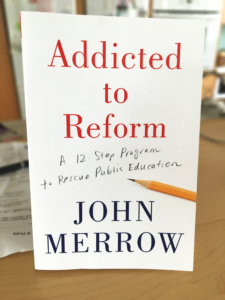This episode of FreshEd is brought to you by the Comparative and International Education Society.
The CIES 2017 Symposium aims to explore new frontiers in Comparative Education. Today, I speak with Peter Demerath about some of the exciting work being done in ethnographic research. We discuss many ideas from indigenous knowledge to grounded grit. Peter even talks about the challenges researching the same community for over two decades, as well as the value such studies can have.
Peter Demerath is an Associate Professor in the Department of Organizational Leadership, Policy and Development, and an affiliated faculty member in the Department of Anthropology at the University of Minnesota. A former middle school social studies teacher, Peter has conducted ethnographic research on schooling, student identity, and academic engagement in Papua New Guinea and in the suburban and urban United States. He is currently President-elect of the American Anthropological Association’s Council on Anthropology and Education.
Citation: Demerath, Peter, interview with Will Brehm, FreshEd, 91, podcast audio, October 16, 2017. https://www.freshedpodcast.com/peterdemerath/
Transcript, Translation, and Resources:
New Frontiers in Comparative Education

 Is America addicted to education reform? My guest today,
Is America addicted to education reform? My guest today,